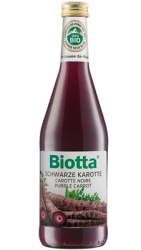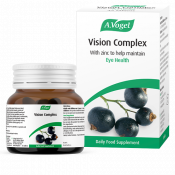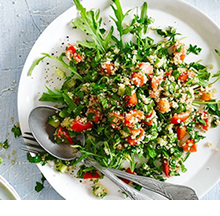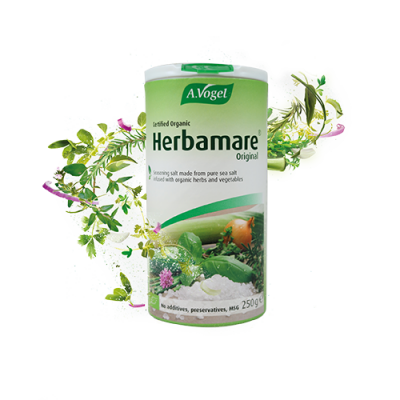Do carrots really help your eyesight?
Did your parents ever tell you that carrots help you see in the dark? Well, it turns out this was more than just some ploy to get you to eat veg!
Carrots are extremely rich in α- and β-carotene which are converted into Vitamin A in the body. Vitamin A is beneficial for the eyes and especially night vision.
It turns out, however, that purple carrots are even more beneficial for the eyes than their orange counterparts. Purple carrots are little nutrient powerhouses as, together with the β-carotene content we'd expect of a carrot, there are quite a few added extras in there that benefit the eyes, including:
- Antioxidants
- Lutein.
Here, I'll take a closer look at how these components can aid the eyes.
How do purple carrots help the eyes?
Antioxidants
A specific group of antioxidants called anthocyanins are thought to give purple carrots their distinctive shade.
Anthocyanins could be beneficial for many aspects of our health, including the cardiovascular system and help to protect against age-related disorders of the eyes,1 such as macular degeneration and cataracts.
Other purple fruits including bilberries, blackcurrants and blueberries have traditionally been used to support the health of the eyes and a lot of this is thought to be down to this very ingredient. So, could purple carrots be the next big thing?
Lutein
Purple carrots have another thing going for them – they're also rich in a carotenoid called lutein. In fact, they actually have more lutein than their orange cousins.
Research shows that a high dietary intake of carotenoids is associated with a lower risk of age-related macular degeneration (AMD). This condition can cause blurred or distorted vision, and is most common among those aged 50-60.
A 1994 study split up 5 groups of people and ranked them in order of their carotenoid consumption. The group with the largest intake had a 43% lower risk of developing AMD compared to the group that had the lowest consumption of carotenoids!2
In this study, the carotenoids lutein and zeaxanthin were most strongly associated with the reduced risk of AMD. This is backed up by a 2007 study which showed that consuming antioxidants, including vitamin C and E, did not have the same positive effects for the eyes as lutein.3
So, to reap the benefits of purple carrot, why not add some purple carrot juice to your diet?
My Top Tip:

Biotta's Purple Carrot Juice is 100% organic and is not from concentrate. It is particularly rich in lutein which is beneficial for eye health.
"I love the taste of this purple carrot juice. It is earthy and sweet."

Can lutein help macular degeneration?
As well as helping to reduce the risk of developing AMD, a 2004 randomised control trial found that lutein could improve symptoms when the condition had already developed.4
This benefit was apparent when taking lutein alone, as well in combination with other nutrients.
Lutein as a treatment for people already suffering from eye conditions may require further research, but these results are certainly intriguing.
Can lutein help cataracts?
Cataracts, which develop over time and can cause cloudy, blurred or double vision, have been linked to a range of factors, including family history of the condition, eye injury, smoking and even poor nutrition.5 It is now thought, however, that deficiencies in the specific eye-friendly carotenoids lutein and zeaxanthin could have a particular influence on this condition.6
A small study in 2003 showed that those with cataracts saw an improvement in their visual performance scores after taking 15mg of lutein, 3 times a week for 2 years.7
Control groups used in the study did not see the same positive results after taking vitamin E or a placebo. In fact, these groups actually saw a deterioration in their eye health.
A more recent large-scale, long-term study following women found that those with the highest carotenoid intake had a 32% lower incidence of cataracts compared to those who consumed few carotenoids.8
However, as much as this indicates that dietary intake of carotenoids seems protective, this study makes it hard to adjust for other aspects of the participants' diets. So, a woman who eats lots of purple carrots may also enjoy other eye-boosting foods that would have influenced the study's results!
To sum up…
To sum up, although more evidence is still needed (especially in terms of lutein as a treatment for eye problems), the research out there supporting purple carrots as helping to maintain and support eye health is looking pretty good!
So, it looks like adding Biotta's Purple Carrot Juice to an already healthy lifestyle may just offer some protection to those eyes of yours – it is certainly worth a try!
References
1 https://www.ncbi.nlm.nih.gov/pubmed/17533652
2 https://www.ncbi.nlm.nih.gov/pubmed/7933422
3 https://www.ncbi.nlm.nih.gov/pubmed/17846363
4 https://www.ncbi.nlm.nih.gov/pubmed/15117055
5 https://www.ncbi.nlm.nih.gov/pubmed/2282948
6 https://www.ncbi.nlm.nih.gov/pubmed/23571649
7 https://europepmc.org/abstract/med/12507634
8 https://www.ncbi.nlm.nih.gov/pubmed/18332316
Originally published 16th January 2017 (updated on 8th November 2019)










